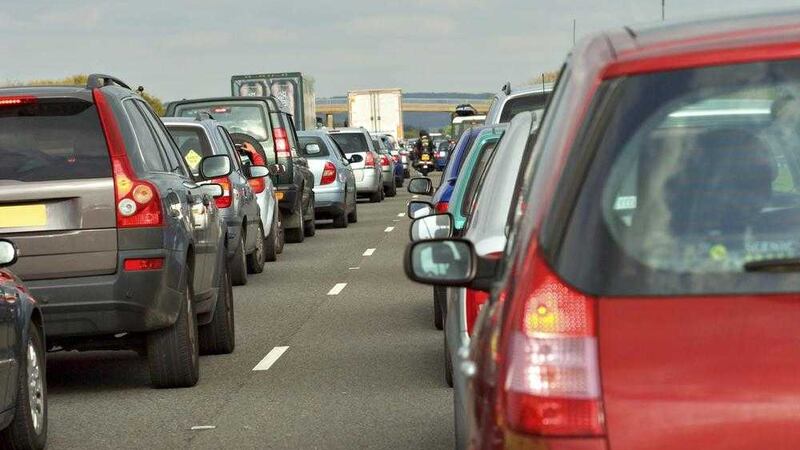THE number of commuters in Northern Ireland who spend two hours or more each day stuck behind the wheel - or on public transport - just getting to and from their workplaces soared to more than 47,000 in the last decade, new figures show.
That's up 65 per cent - or 18,485 more people - than in 2004, according to a TUC analysis published to mark the start of 'Commute Smart Week'.
And some 10,510 people in the north also travel for three or more hours a day, double the figure from 10 years earlier.
In the UK as a whole, long journeys increased by 72 per cent from 1,739,561 in 2004 to 2,994,612 in 2014.
Women employees have borne the brunt of this growth in long commuting, with a 90 per cent per cent rise in those travelling for two hours or more each day and a 131 per cent increase in those travelling three hours or more since 2004, the TUC said.
On average, commuting times rose by three minutes a day from 2004 to 2014, from 52 to 55 minutes, meaning workers are spending, on average, 11 hours and 42 minutes longer a year commuting now than they were a decade ago.
Research has shown that long commutes reduce life satisfaction, says the TUC, and while there is a tendency for those who have long commutes to have above average earnings, the huge rise in those in the service sector travelling for more than two or three hours a day means that more low-paid workers are facing longer and costlier commutes just to get to work.
TUC General Secretary Frances O’Grady said: “It’s bad enough most of us spend an hour a day each way getting to and from work – but spare a thought for those extreme commuters who travel for more than 10, or even 15, hours a week.
“Employers need to address the problem that many of their staff are spending an ever-increasing number of hours getting to and from work.
“More home and flexi-working could easily be introduced to allow people to cut their commutes and save money. This would not only be popular with workers, but fewer, better-spaced journeys would help to beat overcrowding on the roads and railways.”
Phil Flaxton, chief executive of Work Wise UK, which is organising Commute Smart Week, said: “With some 25 million commuters regularly going to a fixed place of work, this special week reminds us that we have an opportunity to change our attitudes and thinking in relation to long commutes.
“Are we really prepared to move into winter with the same anticipated long and often disrupted commutes? Or, are we going to change the way we work by commuting less with the aid of internet and mobile technologies?"
He added: “Employers should grasp this opportunity by changing the way employees work and commute and introduce more flexibility to cut out these restrictive influences on business performance as well as the wellbeing of their employees.”







